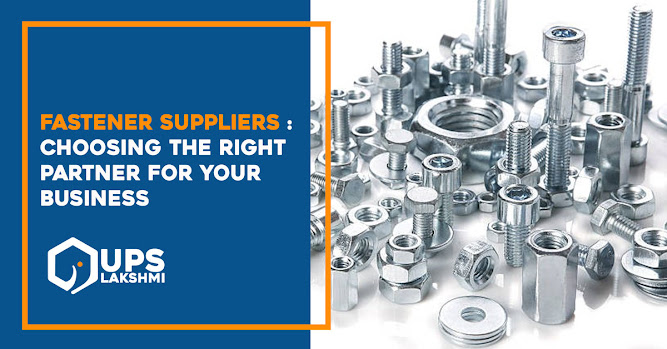Fasteners in the Automotive Aftermarket: Repairs and Upgrades
In the ever-evolving world of automobiles, the importance of fasteners in the automotive aftermarket cannot be overstated. These small but mighty components play a pivotal role in vehicle repairs, maintenance, and upgrades. In this blog, we will delve into the world of automotive fasteners, exploring their significance, types, and how foundation bolt manufacturers are contributing to the safety and performance of vehicles. Let's fasten our seatbelts and take a ride into the world of automotive fasteners.
The Backbone of Automotive Repairs and
Upgrades
Automotive fasteners are the unsung heroes of the automobile industry. They are essential for holding various components together, ensuring structural integrity, safety, and performance. Whether you are a car enthusiast looking to upgrade your vehicle's suspension system or a mechanic repairing an engine, the role of fasteners is paramount.
1. Safety: Fasteners are responsible for securing critical components like brake systems, steering assemblies, and chassis parts. Properly tightened and reliable fasteners are the foundation of vehicle safety.
2. Performance: Upgrading an automobile for better performance often involves the use of specialized fasteners. For example, high-performance exhaust systems require precision fastening to optimize airflow and power output.
3. Durability: Fasteners must withstand extreme conditions, including vibrations, temperature fluctuations, and exposure to corrosive elements. High-quality fasteners are crucial for the long-term durability of a vehicle.
Types of Automotive Fasteners
Automotive fasteners come in various types, each designed for specific applications. Here are some of the most common types:
1. Bolts: Bolts are threaded fasteners that require a nut for securing. They are widely used in engine assembly, suspension systems, and body panels. Cylinder head bolts, for example, are critical for sealing the engine's combustion chambers.
2. Screws: Screws have threads that cut into the material they are fastened to, eliminating the need for a nut. They are commonly used in interior components, such as dashboards and trim.
3. Nuts: Nuts are typically paired with bolts to create a secure connection. They come in various shapes and sizes, including hex, flange, and wing nuts.
4. Washers: Washers are often used in conjunction with bolts and nuts to distribute the load and prevent damage to the material being fastened.
5. Clips and Rivets: These fasteners are non-threaded and are often used for securing trim pieces, interior panels, and electrical components.
The Role of Foundation Bolt Manufacturers
Foundation bolt manufacturers play a vital role in the automotive industry by producing high-quality fasteners that meet stringent standards for strength and durability. These manufacturers invest in cutting-edge technology and employ skilled engineers to design fasteners that withstand the rigors of automotive use.
One area where foundation bolt manufacturers shine is in the production of cylinder head bolts. These bolts are a critical component of the engine, responsible for sealing the combustion chambers and ensuring proper compression. Using inferior or worn-out cylinder head bolts can lead to engine damage and performance issues.
By partnering with reputable foundation bolt manufacturers, automotive repair shops and enthusiasts can access top-notch fasteners that guarantee the safety and longevity of engine repairs and upgrades.
The Future of Automotive Fasteners
As automotive technology advances, the demand for specialized fasteners continues to grow. Electric vehicles (EVs) and autonomous vehicles present new challenges and opportunities for fastener manufacturers. EVs require fasteners capable of withstanding high torque and heat generated by electric powertrains. Autonomous vehicles rely on sensors and cameras that need secure mounting, driving the need for precision fasteners.
Moreover, the automotive industry's increasing focus on sustainability calls for fasteners that are eco-friendly, such as those made from recyclable materials or designed for easy disassembly and reuse.
In conclusion, automotive fasteners are the unsung heroes that hold our vehicles together, ensuring safety, performance, and durability. Whether you are repairing a classic car or upgrading to the latest electric vehicle, the quality of fasteners matters.
Foundation bolt manufacturers, with their expertise in producing critical components like cylinder head bolts, play a pivotal role in the automotive aftermarket. Their commitment to innovation and quality ensures that vehicles on the road remain safe and reliable.
As the automotive industry evolves, the demand
for specialized fasteners will continue to rise. Foundation bolt manufacturers
must adapt to meet these new challenges, providing solutions that keep pace
with emerging technologies and sustainability goals. By doing so, they will continue
to be an integral part of the automotive ecosystem, securing our vehicles and
driving us toward a safer, more efficient future on the road.




Comments
Post a Comment